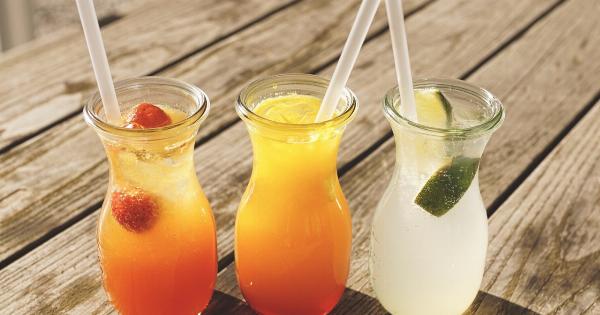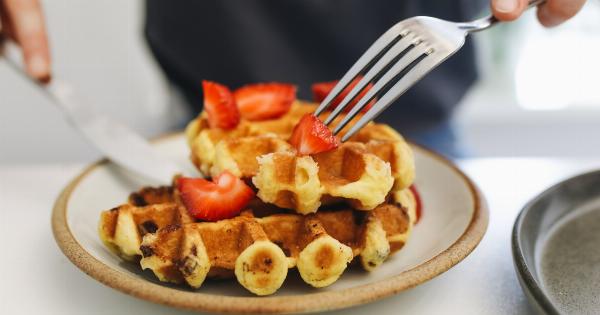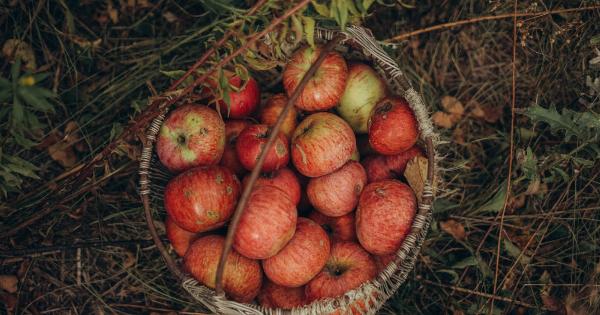When we think about healthy food, we often forget that consuming some foods may lead to health problems.
Some seemingly healthy meals can harbor hidden dangers, and it’s essential to understand which foods these are and how to consume them in moderation. Here’s a list of some of the most common culprits.
Smoothies
Smoothies are a popular choice among people trying to lose weight or stay energized. They’re packed with nutrients, vitamins, and minerals, and can be a great way to meet your daily fruit and vegetable intake.
However, not all smoothies are created equal. Pre-packaged smoothie mixes can be high in sugar and artificial sweeteners, which can be harmful to the body. Furthermore, adding too many fruits and vegetables can lead to high-calorie intakes, leading to weight gain.
It’s crucial to pay close attention to the ingredients and control serving sizes to reap the health benefits of smoothies.
Salads
Salads are another popular choice for health-conscious eaters. They’re packed with vegetables, which are full of fiber and vitamins. However, salads can be high in calories if they’re laden with cheese, bacon bits, and creamy dressings.
Additionally, some restaurants may use contaminated produce, leading to health problems like food poisoning. Be mindful of portion sizes and opt for lighter dressings or make your own to avoid hidden calories.
Fruit Juice
Fruit juice is often marketed as a healthy drink option, but most commercial fruit juices are packed full of sugar to improve the taste.
Drinking too much fruit juice can put you at risk of consuming too much sugar, leading to diabetes and weight problems. It’s essential to read labels and look for 100% pure juice or make your own juice with no added sugar to get the health benefits that fruit offers.
Granola and Breakfast Cereals
Granola and breakfast cereals seem like an ideal way to start your day.
They’re quick, easy, and often marketed as healthy options, but sometimes the cereals and granola you eat can contain high amounts of sugar and additives that can negatively impact your health. They also tend to be calorie-dense, which makes it easy to overeat. It’s essential to read labels and choose cereals with whole grains and low sugar content or to make your own granola using whole-grain oats, nuts, and seeds.
Vegetable Chips
Many people choose vegetable chips as a healthier alternative to regular potato chips. However, vegetable chips are often fried in unhealthy oils, and some brands may contain high levels of sodium.
They can be just as high in calories as regular chips and may contain less fiber than whole vegetables. If you’re looking for a salty snack, choose healthy alternatives like roasted chickpeas or kale chips.
Wraps
Wraps are a convenient lunch option and a healthier alternative to sandwiches. However, some wraps are made with refined flour tortillas, which lack the nutrients found in whole-grain bread.
Wraps can also contain high-calorie ingredients such as cheese, processed meats, and sauces, making them a less healthy option. Opt for whole-grain wraps and fill them up with plenty of veggies and lean protein for a healthy meal.
Cold-Pressed Juices
Cold-pressed juices are made by pressing fruits and vegetables to extract their juice, and many people believe that they’re a great way to consume nutrients in their raw form.
However, cold-pressed juices can be high in sugar and lack fiber that is present in whole fruits and vegetables. Drinking cold-pressed juices regularly can put you at risk of consuming too much sugar, leading to health problems such as obesity and type 2 diabetes.
If you’re drinking cold-pressed juices, choose combinations with low sugar content and pair them with a balanced diet.
Conclusion
Healthy food options are great for maintaining good health, but many healthy meals can harbor hidden dangers. It’s important to pay attention to ingredients and portion sizes and consume these foods in moderation.
Understanding the potential risks of certain foods can help you make informed decisions and support your overall health and wellness.





























